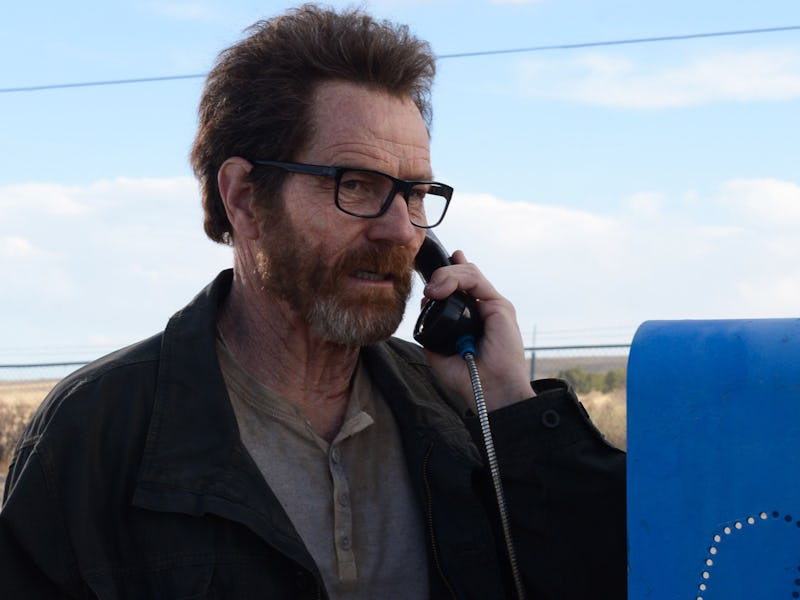Breaking Bad Delivered One of the Greatest Finales Ever — And Marked the End of an Era
One last ride.

Walter White’s journey changed him — and television — forever. In Breaking Bad, Bryan Cranston, whom America knew as Hal Wilkerson from Malcolm in the Middle, the New Mexico chemistry teacher turned meth manufacturer with such a steely demeanor it ushered in a new wave of “anti-hero” television pioneered by The Sopranos. With its brilliant conclusion, Breaking Bad brought about the end of the anti-hero era.
Its ending seemed to be built into the beginning: Walt was dying of cancer, and needed to make enough money to secure his family’s future before he died. But in Felina, the series finale that aired 10 years ago today, we see Walt go full circle and remove the mask he’s been wearing for the entire series slip.
“Felina,” which, as everyone points out, is an anagram for “Finale,” begins with Walt in New Hampshire making one last wish to the universe: “Just get me home. I’ll handle the rest.” It’s almost Walt’s cry to the team behind the series as a whole: one more time, let’s bring it home.
Walt’s last conversation with Skyler is probably one of the most chilling scenes in TV history.
And bring it home they do. There are constant references to Breaking Bad’s beginnings beyond Walt’s new grizzled look. It’s his birthday again, we see him once again visit the Shwartzes, and we even get a flashback to the first time Hank Schrader offered to take him on a ride-along.
This show, like Walt himself, knows the end is coming. There’s no tearful goodbye, no David Tennant “I don’t want to go.” Instead, Walt goes through the motions he needs with a terrifying lack of emotion. He assures the money he collects will go to his family (with the help of “hitmen” with laser pointers) and he kills off his loose-end collaborator Lydia with the weapon that’s become his M.O.: ricin.
But just because it’s the last episode doesn’t mean we don’t have time for one last Walter White scheme. In what would become one of the show’s most iconic moments (and inspiration for an episode of Mythbusters), Walt rigs up a machine gun turret to pop up from his car and remotely shoot up the house where, conveniently, all his remaining enemies are about to execute him.
After “Felina,” we, like Walt, are at peace with the ending because we know who he really is.
Many point to the last moment, where Walt is finally back in a meth lab succumbing to his injuries and accepting this is the end, as the most poignant moment in the finale — and the series as a whole. But the scene that is often overlooked is the one where Walt comes face to face with who, supposedly, was the reason he started this adventure: his wife Skyler.
He hands her a lottery ticket containing the coordinates to Hank and Steve Gomez’s graves, and leaves his wife with one last sentiment: “I did it for me. I liked it. I was good at it. And I was really, I was alive.”
Finally, we see Walt for who he really is. He’s a man who wanted to be someone greater, no matter what it took. Maybe he started this journey looking to provide his family, maybe he didn’t. All that really matters is that as soon as he found that taste of power, he chased it. He’s no less of an addict than his customers, and his family was collateral damage.
It’s that moment that concludes the series as a whole. In the beginning, we knew (or at least thought we knew) that Walt was dying. But in a way, he was just being reborn. Now, in the last moments, he can finally rest and be honest. It’s over. It’s the only way such a complex show could end, and the only way a truly bad man (not quite the anti-hero we were promised) could get his due. It’s clear why this episode is still discussed as one of the greatest finales ever even a decade later — and it’s clear why this episode would bring about the end of the TV era it helped kickstart.